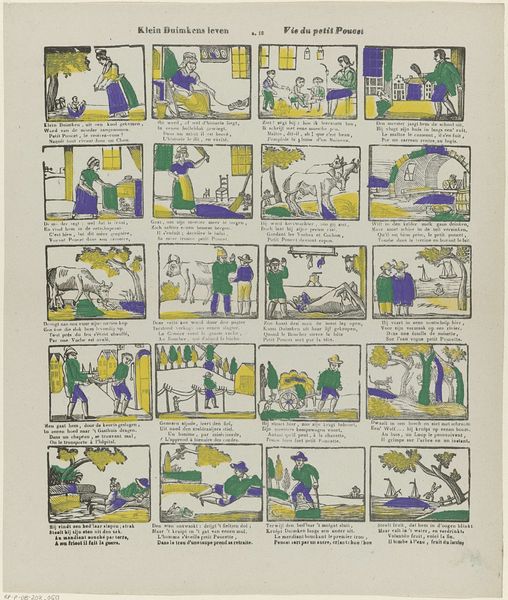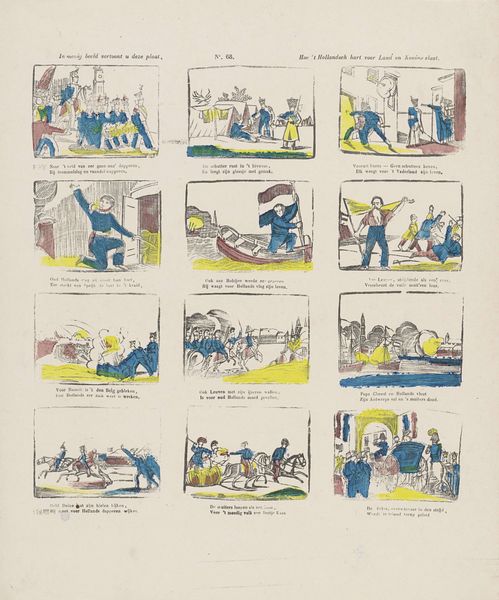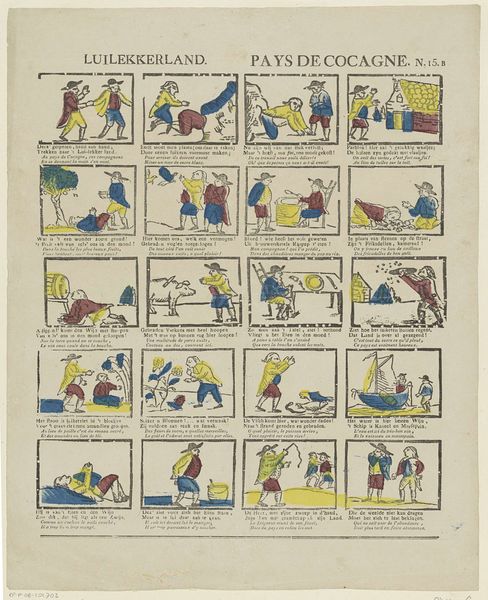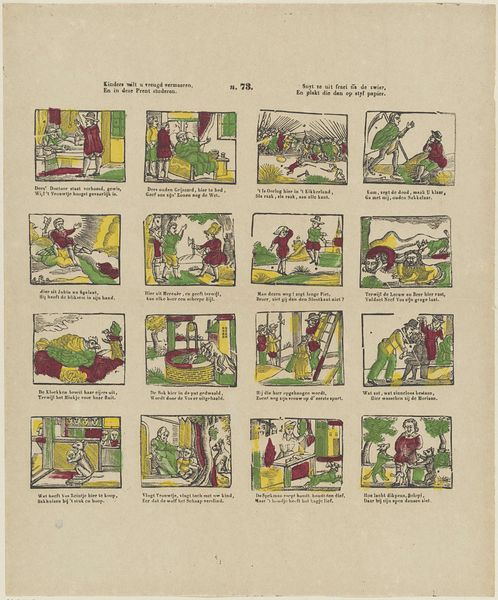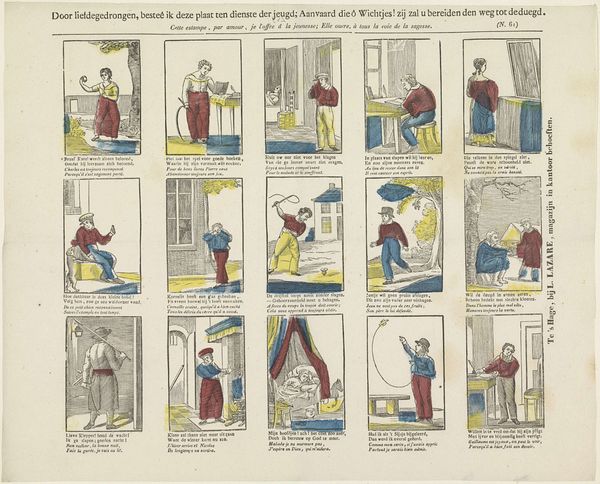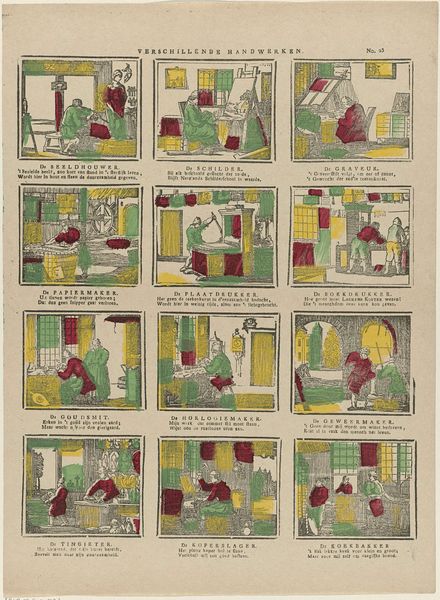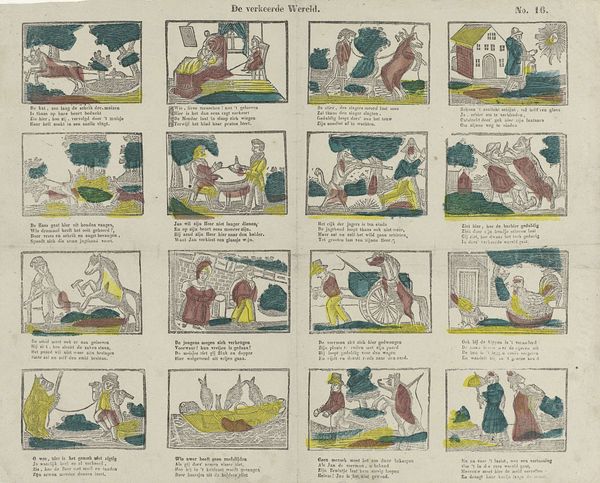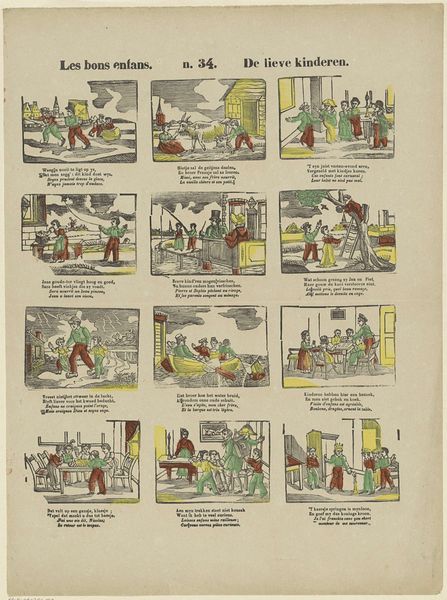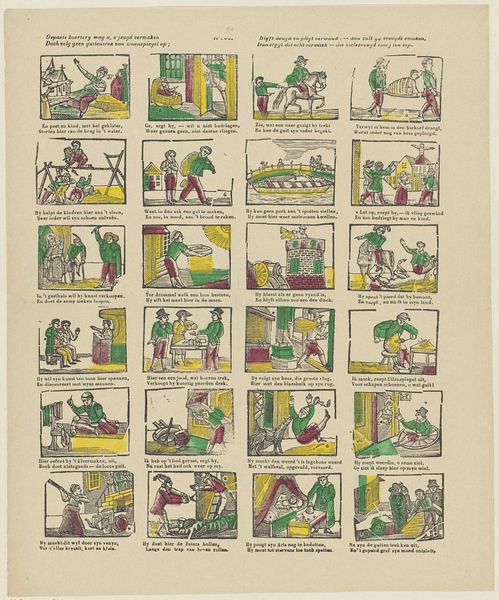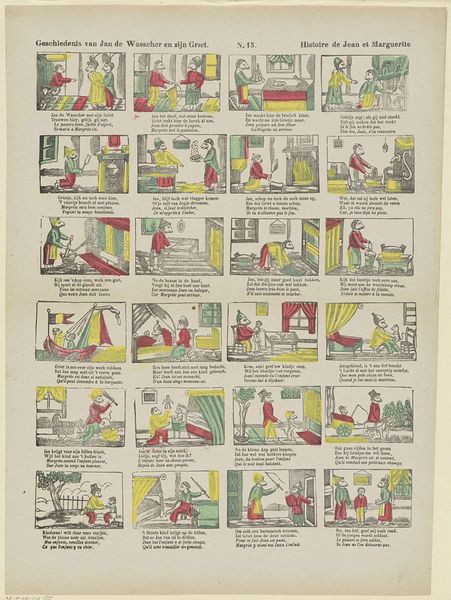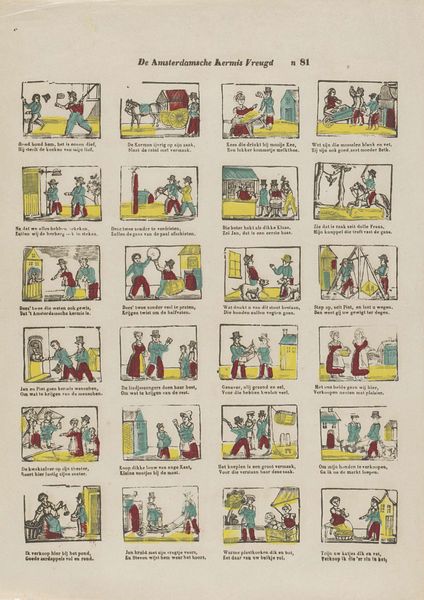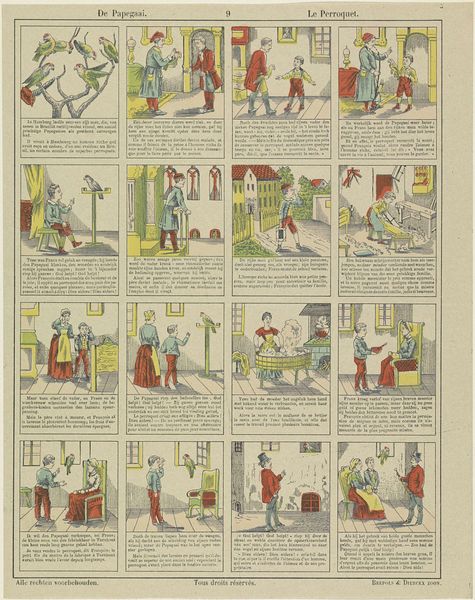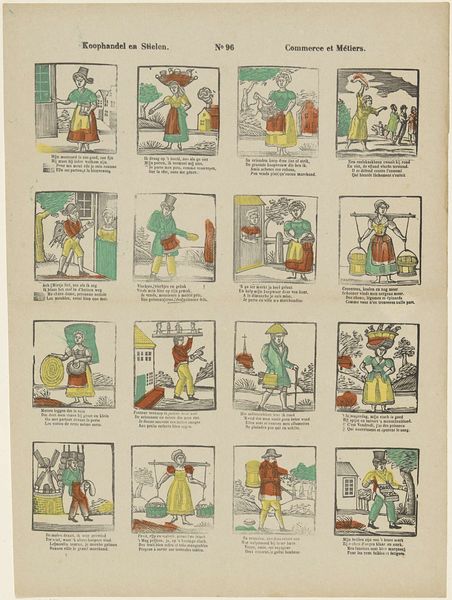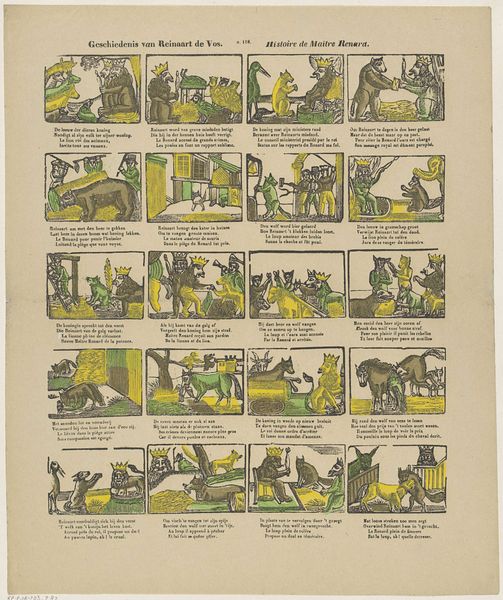
lithograph, print, etching
#
comic strip sketch
#
quirky sketch
#
narrative-art
#
lithograph
# print
#
etching
#
sketch book
#
personal sketchbook
#
sketchwork
#
ink drawing experimentation
#
comic
#
pen work
#
sketchbook drawing
#
genre-painting
#
storyboard and sketchbook work
#
sketchbook art
Dimensions: height 402 mm, width 341 mm
Copyright: Rijks Museum: Open Domain
Curator: Let’s turn our attention to this whimsical lithograph, etching, and print combination by Glenisson & Zonen, dating roughly from 1856 to 1900. It’s titled "De verkeerde wereld / Le monde renversé" - or, in English, "The Upside-Down World." Editor: My immediate impression is how delightful and disorienting this print is. The scenes are rendered in these muted yellows, reds and browns, which is oddly calming considering the topsy-turvy scenarios presented within. Curator: Absolutely. These scenes are laden with symbols of social upheaval. We see women taking on traditionally male roles, animals behaving like humans, a clear mirroring, almost like the world flipped on its head! In essence it depicts a breakdown of traditional social norms. These visual representations provide insights into anxieties about social hierarchies, perhaps, prevalent in the period. Editor: Considering the chosen media –lithograph and etching– that certainly makes it suited to wider circulation; what’s intriguing, though, is that it appears mass production isn’t entirely at play. The muted color choices, possibly applied by hand, hint at smaller scale workshops. So how “accessible” was this world truly meant to be, and to whom? Was this a common image found across households or targeted towards more moneyed classes? Curator: Good question. It could serve as social commentary readily available and cheaply printed for distribution within working class communities. Editor: Perhaps a combination is possible. Either way, this inversion theme isn’t really unusual: think back through time at Saturnalia feasts in Roman times, Carnival revels in Europe, where social structures were upended for play. Curator: Exactly! The artwork creates a cultural memory, the human craving to explore alternate realities in which things are far removed from everyday drudgery and social norms and roles. And so it seems the world inverted remains perennially a rich source material to imagine new worlds. Editor: And the very materials suggest this dream world existed alongside—or perhaps precisely *within* the everyday working lives, social lives, the consumer existence itself. Curator: Indeed. Both medium and symbolism cleverly reflect society in surprising, thoughtful ways.
Comments
No comments
Be the first to comment and join the conversation on the ultimate creative platform.
